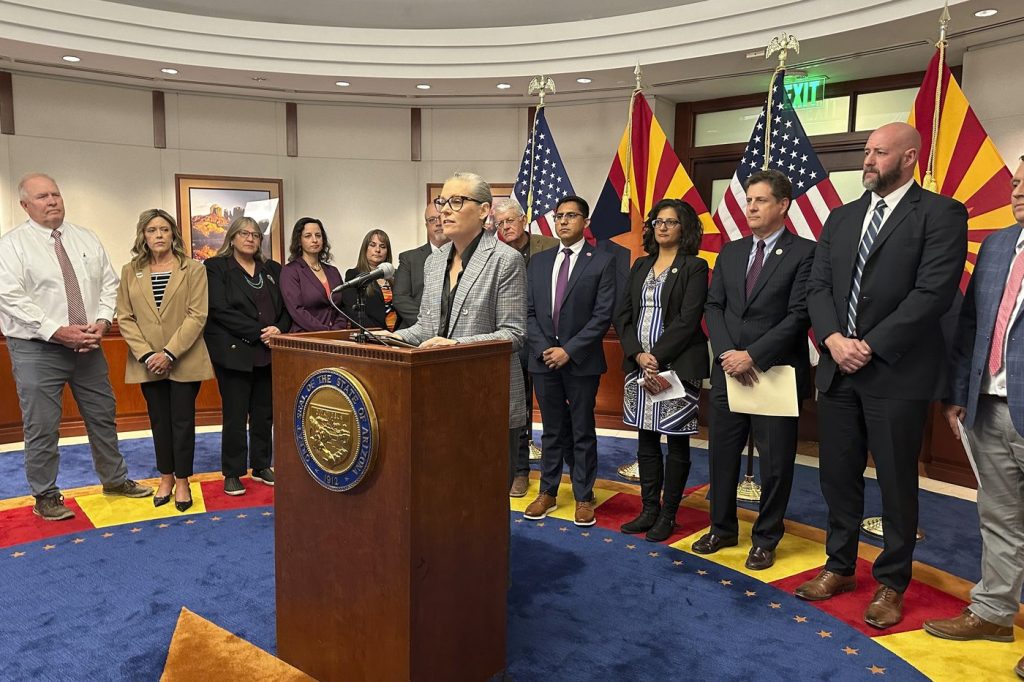PHOENIX (AP) — Democratic Arizona Governor Katie Hobbs has renewed her efforts to regulate groundwater in rural areas of the drought-affected state. On Thursday, Hobbs expressed optimism that her initiatives would gain traction in the Republican-controlled Legislature. Standing alongside local officials, rural Republican leaders, and Democratic lawmakers, Hobbs presented a proposal for creating new management areas aimed at regulating groundwater pumping, which has traditionally been unregulated for farmers and rural residents.
During her announcement, Hobbs emphasized the progress made in the previous year regarding rural groundwater reform, stating, “We made more progress last year on negotiating rural groundwater reform than has been made ever. We’re not starting at ground zero. We’re starting at a good place.”
Both chambers of the Legislature saw identical bills introduced on Thursday, but notably, neither bill had Republican co-sponsors. Prescott Mayor Phil Goode, representing local conservative leadership, urged his fellow Republicans not to consider water regulation as a partisan issue. He remarked, “Last time I checked, there wasn’t Democratic water and Republican water. There’s water for our state.”
Travis Lingenfelter, a Republican and chair of the Mohave County Board of Supervisors, commented on the ongoing negotiations between both parties, indicating that Republicans might introduce their own legislation regarding rural groundwater management soon. While a spokesperson for the Senate GOP could not confirm this, Lingenfelter stated that the discussions have brought both sides “really close” to a middle ground, compared to their initial positions last year, which he described as “polar opposite.”
Currently, groundwater regulations exist in Arizona's most populated regions, including Phoenix and Tucson, known as active management areas. These regulations were established in 1980 and have not seen any updates since. The proposed legislation aims to establish an intermediate alternative between the active management areas and irrigation non-expansion areas, which restrict farming on new land. Critics have noted that active management areas may be overly regulatory, while irrigation non-expansion areas are seen as lacking sufficient oversight.
The new legislation seeks to create four rural groundwater management areas in basins facing severe declines, specifically around Gila Bend, Kingman, Vicksburg, and Willcox. Additionally, it aims to transition the Willcox Basin, currently designated as an active management area, to the less restrictive framework proposed in the legislation.
In a notable departure from previous Democratic proposals, the conservation guidelines in the new legislation are designed to offer more flexibility. It also includes the formation of councils, akin to those previously proposed by Republicans, allowing local leaders to set conservation targets.
Hobbs made it clear that she would not hesitate to take unilateral action should the Legislature fail to reach an agreement during the current session. This signals her commitment to addressing the critical issue of groundwater regulation despite potential political obstacles.
Overall, Governor Katie Hobbs's renewed effort to regulate groundwater in Arizona seeks to tackle issues arising from drought conditions while balancing the interests of different stakeholders in rural areas. Her optimistic approach and willingness to collaborate could pave the way for effective solutions in managing the state's water resources moving forward.










